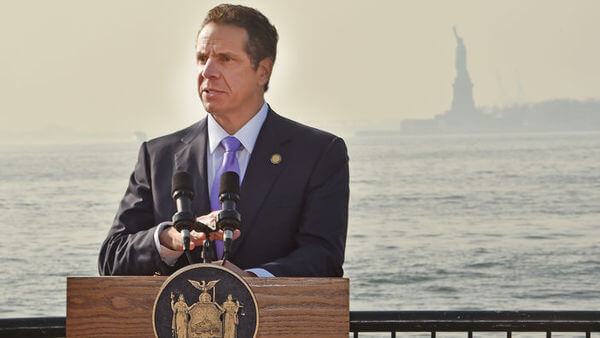News Release from windfair.net
Wind Industry Profile of
Obama Paves Way for His Successor with Stones
In the last few weeks, especially in the field of energy and environmental policy, Obama's government has been massively engaged to launch last measures and to take the wind out of the sails of climate change skeptics Trump in the run-up to his presidency.
Thus, before Christmas, Obama announced in a surprising move along with Canadian Prime Minister Justin Trudeau he agreed to block large parts of the Arctic and the Atlantic Ocean for new oil and gas drilling – a blow to the designated energy policy of Donald Trump who had repeatedly announced in his election campaign to revive the fossil energy industry.
Shortly before the turn of the year, Obama then declared two large territories in Utah and Nevada as 'National Monuments', sites, which are under special protection of the state and where, for example, oil or gas must not be drilled. In this, experts see another targeted action against Trump, who will propably have difficulties to reverse this type of provision. “The Antiquities Act gives the president the authority to create monuments but does not provide explicit authority to undo them,” said Christy Goldfuss, a White House employee, at the request of Politico reporters.

Justin Trudeau and Barack Obama (Image: Canadian Government)
Last weekend current US Energy Secretary Ernest Moniz visited Mexico, where both states signed a foundational document to strengthen the transnational power supply and expand grid activities. “The United States and Mexico have a long-standing energy partnership that is being strengthened further as Mexico advances its impressive energy sector reform," said Moniz. “Electricity system integration will help both countries achieve economic, energy and environmental goals, and these agreed upon principles will help assure reliability and resilience.”
How precisely Donald Trump, whose main theme in the election campaign was the construction of a wall to Mexico, wants to undo this agreement will be interesting because the American ministry itself only recently revealed how positive the close integrated grids of the US and Canada have in turn affected the security of both countries.
Earlier this week, Obama finally put the bumblebee on the list of endangered species. In recent decades, the bumblebee population has decreased massively worldwide, which is attributed to environmentalists, among others, on pesticides. The inclusion on the list sets in motion a comprehensive package of measures for the rescue of the species, including measures to restrict pesticides. Another blow to the American economy, as Trump might formulate it.
There is ample evidence that Trump is wrong with his statement that environment protection weakens the economy. The economy itself seems to have different opinion to begin with, as an open letter, signed this week by 600 US companies of all sizes, showed. These include medium-sized and local companies, as well as big brands such as Hewlett Packard, Nike, L'Oreal and Starbucks. In the letter, the companies are calling for Donald Trump to continue the policy of his predecessor, which results in a reduction in national CO2 emissions, so to “allow the US to meet or exceed our promised national commitment and to increase our nation’s future ambition”. They wanted to strengthen the confidence of investors worldwide and to ensure that the Paris climate agreement, which the US has signed, will continue to be maintained in the future in order to keep global warming below 2 degrees.

(Image: Low-Carbon USA)
Barack Obama himself has made a detailed comment on the topic of the future American climate policy in a guest contribution in the Science journal. He points out that Trump is not likely to leave the path completely: "I believe that the trend towards clean energy is irreversible." In his article, he mentions examples of companies making their own decisions to improve the climate protection of their production chain, such as General Motors, which ultimately led to lower production costs, but also to greater economic growth.
The view that renewable energies themselves create jobs and stimulate the economy is no longer a purely democratic one. For example, the newly elected Governor of Vermont, Republican Phil Scott, has emphasized that he will continue to maintain the climate protection targets (90 percent renewable energy by 2050) set by his Democratic predecessor, as he told the press at the opening of a solar power project.
Trump will probably find it hard to get the governments of all 50 states on his track. While he was busy blaspheming about US actress Meryl Streep on Twitter, Andrew Cuomo, Democratic Governor of New York State, announced plans to implement 2.4GW of offshore wind energy by 2030 to power 1.25 Million households with clean energy. This is the greatest commitment of a US state in history.
"New York's unparalleled commitment to offshore wind power will create new, high-paying jobs, reduce our carbon footprint, establish a new, reliable source of energy for millions of New Yorkers, and solidify New York's status as a national clean energy leader," Governor Cuomo said. "The Offshore Wind Master Plan will establish a bold strategy to harness this untapped resource in New York and provide a new source of energy to power a brighter, greener future for all."

Andrew Cuomo, Governor of New York State (Image: New York State)
As it turns out, Trumps's introduction as President might not be the end for renewable energy at all, even if some personnel decisions had already highly alarmed many enironmentalists. For instance, Scott Pruitt's appointment to the top of the US Environmental Protection Agency (EPA) is contradicted by the appointment of former Texas governor Rick Perry as energy secretary. In his term from 2000 to 2015 he diverted Texas from an oil state to the US market leader in wind energy.
- Author:
- Katrin Radtke
- Email:
- kr@windmesse.de
- Keywords:
- Donald Trump, Barack Obama, energy, environment, climate change






